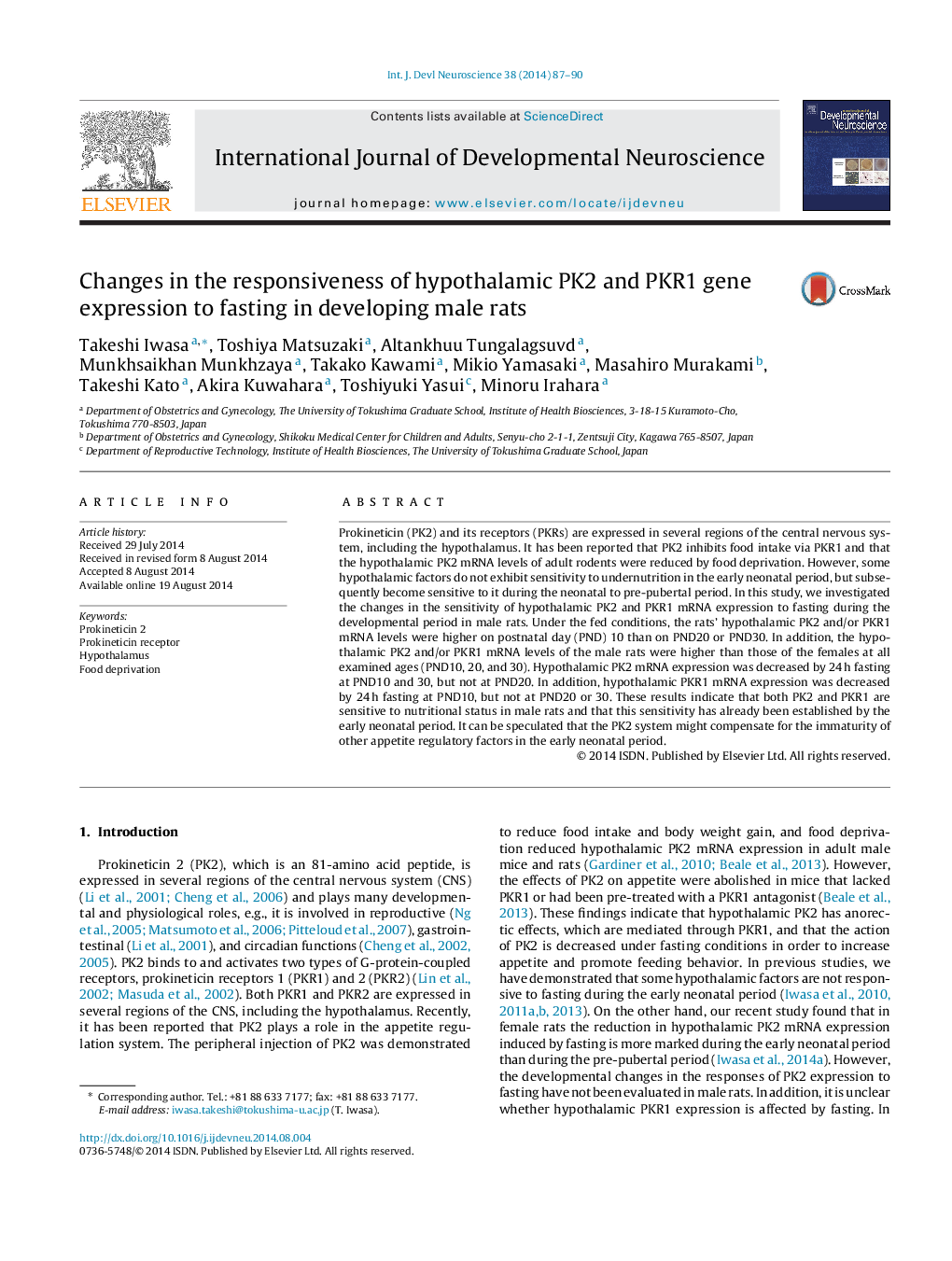| Article ID | Journal | Published Year | Pages | File Type |
|---|---|---|---|---|
| 2785959 | International Journal of Developmental Neuroscience | 2014 | 4 Pages |
Prokineticin (PK2) and its receptors (PKRs) are expressed in several regions of the central nervous system, including the hypothalamus. It has been reported that PK2 inhibits food intake via PKR1 and that the hypothalamic PK2 mRNA levels of adult rodents were reduced by food deprivation. However, some hypothalamic factors do not exhibit sensitivity to undernutrition in the early neonatal period, but subsequently become sensitive to it during the neonatal to pre-pubertal period. In this study, we investigated the changes in the sensitivity of hypothalamic PK2 and PKR1 mRNA expression to fasting during the developmental period in male rats. Under the fed conditions, the rats’ hypothalamic PK2 and/or PKR1 mRNA levels were higher on postnatal day (PND) 10 than on PND20 or PND30. In addition, the hypothalamic PK2 and/or PKR1 mRNA levels of the male rats were higher than those of the females at all examined ages (PND10, 20, and 30). Hypothalamic PK2 mRNA expression was decreased by 24 h fasting at PND10 and 30, but not at PND20. In addition, hypothalamic PKR1 mRNA expression was decreased by 24 h fasting at PND10, but not at PND20 or 30. These results indicate that both PK2 and PKR1 are sensitive to nutritional status in male rats and that this sensitivity has already been established by the early neonatal period. It can be speculated that the PK2 system might compensate for the immaturity of other appetite regulatory factors in the early neonatal period.
